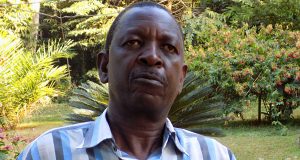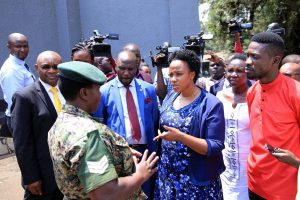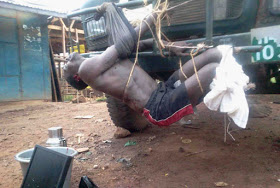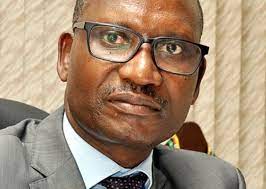TRANSPARENCY: CoST Uganda Commissions 2nd Infrastructure Transparency Index
BY OUR REPORTER
KAMPALA, Uganda|SHIFTMEDIA| After security operatives commandeered by SFC (Special Forces), the Elite Presidential Bridgade that stormed and ransacked several Internal Security Organisation (ISO) safe houses in Kampala, reports from top intelligence source reveal that ISO boss and scores of other operatives are due for interrogation.
Scores of ISO operatives and spies who were arrested during the Friday morning operation are currently being detained in several highly kept secret detention facilities in and around Kampala.
According to the top security source, Kaka Bagyenda, the ISO Boss is due to be quizzed regarding continued complaints against torture reportedly conducted in the various safe houses in and around Kampala.

Bagyenda declined to comment when contacted. But the highly place security source revealed to Shiftmedia News that the Commander-Chief- Gen. Yoweri Museveni has of late not been impressed with the reported news of torture in these ISO operated safe houses.
Recently President Museveni penned a letter to ISO Boss Kaka (below) complaining and urging the top spie chief to refrain his “Boys” from torture.

Museveni who has always warned the security against using torture as a means of extracting information from suspects told the ISO Director General Kaka that the use of torture as a method of interrogation is outlawed.
Gen Museveni told the ISO DG that under the NRA-turned UPDF, torture can not be used as a method of extracting information from suspects.
In May 2017, shortly after the brutal murder of the Assistant Inspector General of Police Andrew Felix Kaweesi,
President Museveni wrote a communique to the country’s army and police chiefs, warning against the torture of suspects.
Yoweri Museveni’s letter came barely two weeks after suspects arrested in connection with the murder of Andrew Felix Kaweesi submitted court evidence of having been tortured.
A week later, gruesome pictures surfaced of a town mayor with gaping wounds on his knees and ankles which were said to have been inflicted by police.
In his letter, Museveni told the security forces that extracting confessions was not necessary if investigators got results from fingerprints, photographs, DNA tests, and other scientific methods to secure convictions.
“Somebody may admit guilt when he is innocent in order to be spared being tortured,” the communique read.
Museveni also warned against “defective shortcuts” adding that “evidence through torture is not reliable”.
While appearing before a committee of Parliament over reports of torture, Security Minister Gen. Elly Tumwine said:
“There is nothing which is open to everyone, there are limitations to everything even in your house, and there are areas which some people don’t reach. There are areas which for security reasons, this committee is not allowed to visit.”
This was a statement by Gen. Elly Tumwine while appearing before the Parliamentary Committee of Human Rights. The Minister had been invited to update the committee on the state of Safehouses in Uganda.

Tumwine was summoned to comment following a motion raised before Parliament by Kawempe North’s Hon. Latif Ssebaggala, Lwemiyaga County MP Theodre Sekikubo, and Hon. Kasiano Wadiri for Gen Tumwine to explain what the Government conducted illegal arrests and detentions of Ugandans in “safe houses” without trial.

In a heated discussion, the Committee demanded that the Minister respond to among other things; whether indeed there were safe houses in Uganda, the number of safe houses, under which laws they were operating, how people were taken to safe houses, who qualified to be kept in safe houses and why was it that majority of persons who were being kept the safe houses were from the opposition parties specifically, “people power.”(Pressure group)
General Tumwine informed the committee that Uganda had safe houses and noted that safe houses were secure places used for intelligence work. He further said that all intelligence and security agencies world over operate safe houses and that the running of safe houses was not peculiar to Uganda but a worldwide intelligence practice.
He highlighted that some functions of a safe house in Uganda included:
• To coordinate clandestine intelligence operations
• To debrief and re-brief intelligence assets
• To secure and protect witnesses in danger, especially criminals who have turned into witnesses
• To secure persons who come seeking to be protected by the state for various security reasons
• To manage hard-core criminals who require a long time to reform and now need observation and surveillance.








